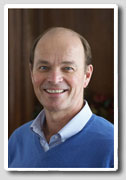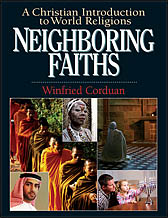J. Nathan Matias?(@natematias), Research Assistant,?MIT Media Lab Center for Civic Media?continues his?Urbana12 series. This post in original form (12/30/2012) can be found?here. Thank-you Nathan! Great to have you contributing material to the ESN Blog. Your work is much appreciated.. ~?Thomas B. Grosh IV, Associate Director of ESN.
???????-
This weekend, I?m at?Urbana, a gathering of Christian students interested in the work of the church worldwide.?Over the last few days, I have been blogging seminars, in which a speaker gives a talk to around 50-60 participants.
It?s easy to develop romantic excitement about a cosmopolitan lifestyle, especially at a vast international gathering like Urbana. What practical steps can Christians take to learn about and meet people from other cultures and places?

Paul Borthwick
Our speaker,?Paul Borthwick, teaches missions at?Gordon College?and has a website which features only one phrase: ?listening to the world.? His latest book,?How to be a world-class Christian, is a practical guide to maintaining a feet-on-the-ground perspective and a global vision. Paul shares eight basic exercises to keep our vision for the world growing.
Compile Information. Carry out a study of the basics of missions. Read about the great commission, and work out the reasons you have for serving the world. For example, some people have read through the Bible and circled every part where the rest of the world is mentioned.
We need to change how we see others if we?re to relate well to people from cultures different than our own. Paul asks us how our relationships would change if we imagined that every person was created in the image of God. When Paul lived in Boston, this thought changed how he treated other drivers. Biblical information like this changes the way we look at the world, he says.
Learn about our world from the news, Paul tells us. When Paul was a seminary student, he was upset that someone had left a newspaper in the prayer room. His professor responded, ?the Bible tells us what God wants to do in the world. The newspapers tells us where he wants to do it.? Listen to the BBC (World Service,?PRI The World) at least once a week, Paul says, and pray about those places. Paul tells us to learn the countries of the world. If you know where someone is from, it opens wonderful doors to talking and making a relationship.

Engraving of William Carey from ?William Carey: The Shoemaker Who Became the Founder of Modern Missions? (John Brown Myers. London, 1887). Public domain due to copyright expiration.
We can and should?go beyond news?into other media by and about people worldwide. Paul talks to us about?William Carey (1761-1834), a shoemaker who went to India and launched what is considered now to be the modern missionary movement. Carey got his first vision for mission by reading the accounts of Captain Cook?s travels in the South Pacific. Carey?s vision for cross-cultural mission began when he asked himself the question, ?Who?s going to tell them about Jesus??
Next, Paul asks us to turn down the collar of the person next to us and look at the label. ?How many of you have clothing from the USA? From Canada? From Africa, Asia, or Latin America? When you look at your clothes, pray for the country and the people who made your shirt. Paul encourages us to?learn something from everywhere and everything about somewhere.
We should pray, and?become a globally-minded Christian through our prayers. We can go in our prayers places we may never go in our lives; there?s nothing stopping us from praying the world. Paul tells us to go to?OperationWorld.org?to find a new country to pray for each day. Our first response to global need should be prayer, because we?re not the lord of the world or the masters of the universe. We can?t determine the future, but we can bring our requests to God.
We should?be involved?in the lives of people in other places. Paul says that whenever he meets someone with an accent a little different from his, Paul will ask him where he?s from. ?I have never met an international student who doesn?t like someone being interested in him.? He tells us about a church he visited, where the missions committee was afraid to talk to people of other cultures in their neighbourhood.
We should?integrate our beliefs with our action. That requires alertness that there?s a bigger world than the one we live in. 94% of the world live outside of the US and Canada. Paul encourages us to donate and support humanitarian organisations.
Finally,?investigate how your passions connect to international work.?GoCorps?is a new development in mission, which do work in-between a few months and four to five years. They offer one to two year long opportunities to travel and serve.
?I live seven miles from where I grew up, Paul says, and I have never lived outside of Massachussetts.? And yet he has cultivated a cosmopolitan life from where he is, through travel and by getting to know the diverse communities near where he lives. Paul tells us that quite often, people involved in the missions committee of their church are too shy to talk to the diverse people who live in their own neighbourhoods. Especially across the U.S., we are all part of a global village whether we want to be or not.

Neighboring Faiths: A Christian Introduction to World Religions by Winfried Corduan (InterVarsity Press, 1998).
How can we encourage others to take on a cosmopolitan outlook? Paul advises against calling out other people?s parochialism. Instead, say ?Hey, anyone want some Schwarma?? He also encourages Christians to read Winfried Corduwan?s?Neighbouring Faiths: A Christian Introduction to World Religions.
At the?Center for Civic Media, where I am a gradstudent, we think a lot about digital cosmpolitanism. If you want to learn about another culture online, it?s often possible to find a connection through something you?re already passionate about. Here are some examples:
- My advisor?Ethan?s book?Rewire: Digital Cosmopolitans in the Age of Connection, comes out in June. You can?watch his TED talk on digital cosmopolitanism online.
- Global Voices, which reports and translates what people are saying on blogs from countries and languages around the world.
- The?Meedan Network?is a ?digital town square where you can share conversation and links about world events with speakers outside your language community. Everything that gets posted on meedan.net is mirrored in Arabic and English ? whether it?s the headlines you read, the comments you write, or the articles you share.?
- New America Media?is a network which shares news from ethnic media across the USA.
- Tea Leaf Nation?is a web magazine that distils interesting and informative Chinese news for English readers.
- Patheos?is a website where people from a large range of religious traditions have conversations within and across communities of faith.
- Pick something you love and learn about it in other countries. My advisor Ethan likes?Dhani Tackles the Globe, in which Bengals linebacker Dhani Jones learns how to play sports in different places while exploring their cultures (you can watch his?Thailand / Muay Thai episode?on YouTube).
- I?m enjoying?Afropop Worldwide, a radio program and online magazine dedicated to music from Africa and the African Diaspora. I also follow?African Digital Art?and?Africa is a Country, a site which is ?not about famine, Bono, or Barack Obama.? Africa is a Country just released lists of?top 10 soundclouds,?top 10 films,?top 10 music videos,?top 10 albums, and the?10 greatest sporting moments of 2012.
- The documentary?Planet Takeout?presents takeout as a place for cultural exchange. The documentary shares the people and experiences behind Chinese takeout in Boston. If you want to find out more about the people at your local takeout, they share?a scavenger hunt for anyone who wants to document their local takeout.
How do you go about learning about other cultures? Share here:
The Emerging Scholars BlogThe Emerging Scholars Blog | From InterVarsity?s Emerging Scholars Network
giuliana and bill giuliana and bill bill rancic nflx jennifer hudson chicago blackhawks giuliana rancic
কোন মন্তব্য নেই:
একটি মন্তব্য পোস্ট করুন